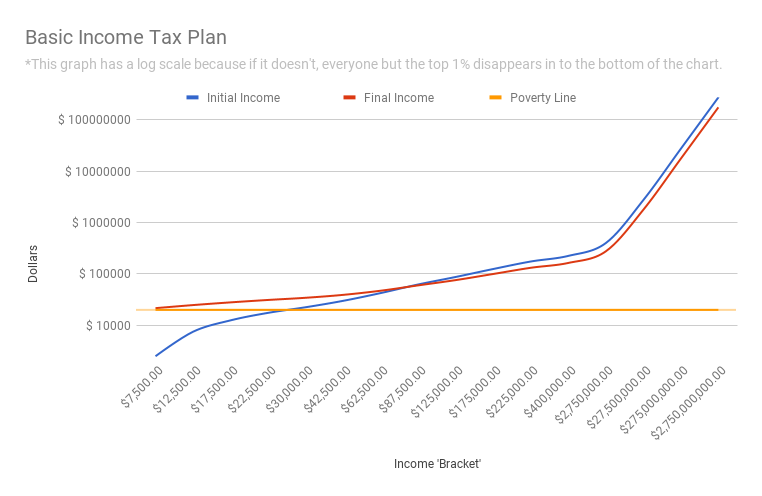When you’re a kid first getting their allowance, you would spend literally all the time you had in order to get literally any money. I would clean my room, mow the lawn and do yard work for a couple of hours in order to get a pittance (maybe $5). I had all the time in the world, and no money, so I would work as long and hard as I needed to in order to acquire even the smallest amount of money.
At 15, I started working at McDonalds. I was in school of course, but it was no problem working 8 hours each day on the weekend and 2-3 nights a week. The only things I had to plan around were the occasional soccer practice/game, and spending time with friends (which I mostly did at school anyhow). I would work a ton because I barely had any money, but I still had lots of time and could use every extra dollar earned.
By the time I hit 23 years old and finished school, I was working 40 hours a week, and trying to grow as a person, in order to gain experience and get a good, comfortable job. I was trying to pay off student loans, so I was working ‘full-time’, but I still had quite a bit of time on my hands, so I would do whatever I needed to in order to spend little to no money to do things.
This meant that when I built a website, I did it on a free platform, even if that meant putting a TON of time and effort in to making it do what I needed it to. When I wanted to watch a TV show or movie(s), I would find them online and watch, even if doing all that required a precarious, legally dubious setup that took months to get working just right.
When I was finding music or looking at online storage solutions, I used the free tier and navigated around in order to stay under every cap that would have required me to pay for anything.
Fast forward a little bit to about 2 years ago. I’m now married, starting to build a career where I’m happy at work and doing things I love. The time/money balance is starting to shift more towards money. I’m making a comfortable living and helping to pay down a mortgage, and I’m not worrying about where my next paycheck or my next 20 paychecks are coming from.
I’m still enjoying hobbies that are effectively free, but I’m starting to realize that the trade-offs I’d made when I was 23 just don’t really make sense any more. I am gradually coming to terms with the fact that I don’t have as much spare time as I used to, and it might make more sense to pay for some things to have them done now, rather than working for hours or days or weeks to have them done for ‘free’. Throwing money at a problem could make it go away, and would free up my time to spend with my wife, family, and the other people I care about.
When it comes to making a decision at this time, I’ll spend $20-30 here or there, I’ll subscribe to a $10 a month service if it’s something I use. The time I save by spending that money is well worth it.
This brings us up to today. I’m married, about 20% of the way through my career (probably), and I have an 8-month old daughter and a dog at home to take care of. Outside of sleep, commute, eating, work, making sure the baby has everything she needs, and things like making sure bills are paid, I get about 2-3 hours a day where I can even think about taking time for myself, or to potentially spend on hobbies (realistically, it’s more like 1-2 hours a day over an average week, not including weekends).
I make a comfortable living, which I’m extremely grateful for, and more than ever before, I find myself inclined to pay money to get time back for myself and my family. For me, that means signing up for a meal plan to get food sent to my door to reduce grocery trips, or subscribing to cable TV and Amazon Prime to watch TV and movies without thinking about where they’re coming from, or buying a virtual private server to host my website so that I have control over it as opposed to being ruled by and wrestling with the free hosting solutions I had previously been using.
On the time/money continuum, I have enough money that it’s worth it for me to spend it to get my time back in many situations, and I think a lot of people can take the time something takes for granted when thinking about how busy they are or what is most important to them. If the ultimate goal is retirement, is it really worth spending the most active 30+ years of your life constantly worrying if you’ll have enough money to make it through? I’m not sure everyone is truly considering the costs of that stress on their bodies when they make those calculations for themselves.
I’ve spoken before (a LOT) about the concept of basic income, and how everybody should have the luxury of not worrying where their money for basic necessities should come from. The other side of basic income is that it would let families where parents have to work 2 jobs buy some of their time back, rather than spending it all earning just barely enough to survive in poverty.
Giving every adult enough money to ‘need’ to work less would be a huge boon to the mental health and well-being of everyone in our society, and it would allow those of us who don’t have enough time to actually live their lives a little more flexibility to decide where they want to spend their time, and how they would like to spend their money.
I know if anybody in my family was struggling to make ends meet, I would feel an obligation to help them out, and I think it would do all of us a great deal of good to think of the people around us in our cities as family, and supporting anybody who has fallen on hard times by giving them money with no strings attached, just like you would a family member.
Everybody deserves to choose how they spend at least some of their time, and that requires money.



